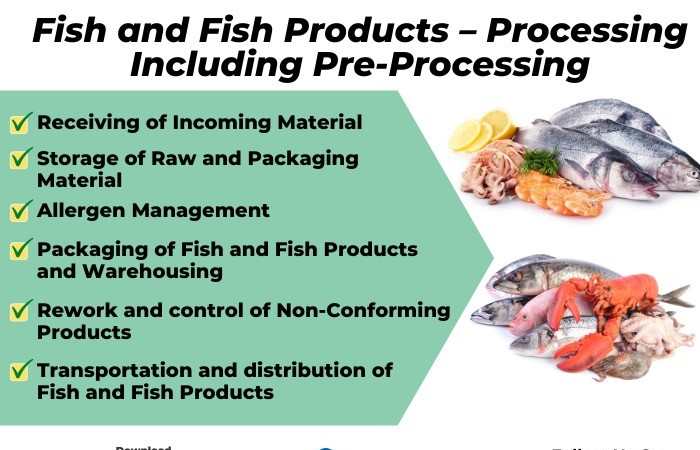How to Run Fishmonger Business? – Fishmonger Business
How to Run Fishmonger Business? – A fishmonger business is a type of retail business and it specializes in selling fish and seafood products to consumers. Fishmongers may operate from a physical storefront, a fish market, or an online platform.
A fishmonger business primarily provides its customers with high-quality fish and seafood products, and it may involve sourcing fresh fish from local fishermen, farms, or international suppliers. A fishmonger ensures that the products are appropriately cleaned, filleted, and prepared for sale.
Fishmongers may sell a wide range of fish and seafood products. They include fresh fish, shellfish, and smoked fish. They may also offer prepared foods such as fish and chips, fish tacos, or sushi rolls. Some fishmongers may also sell sauces, spices, and cooking utensils.
A successful fishmonger business requires a deep understanding of the seafood market. A fishmonger should have adequate knowledge about supply and demand dynamics, and they should know about pricing and quality standards. Additionally, fishmongers must be knowledgeable about different fish species, their flavor profiles, and their preparation methods. Brilliant customer service and attention to detail are essential for building a loyal customer base in this highly competitive industry.
1. What are the Necessary Steps to Run a Fishmonger Business?

Starting and running a successful fishmonger business requires a combination of passion, knowledge, and hard work. Below are some critical steps to help you create your own fishmonger business.
1. A Business Plan:
A business plan is essential for the progress of any business. This plan should summarize your business idea, target market, marketing strategies, budget, and also financial projections. It will help you stay focused and organized as you work to start and grow your business.
2. Choose a Location:
The location of your fishmonger business is crucial, and you should choose a site that is easily accessible to customers and has good foot traffic. It would be best to consider the cost of rent or lease, the availability of parking, and the zoning requirements for your business.
3. Secure Funding:
Starting a fishmonger business requires significant equipment, and you should buy inventory and make suitable marketing investments. You may need to secure funding from investors, banks, or other sources. Deliberate applying for small business loans or grants.
4. Acquire Licenses and Permits:
You must acquire various licenses and permits before legally operating your fishmonger business. It includes business licenses, food service permits, and health department certifications.
5. Buy Equipment and Inventory:
You must buy refrigeration units, scales, and packaging materials. You must also purchase inventory, including fresh fish, shellfish, and other seafood products. Consider developing relationships with local fishermen or suppliers to ensure a steady supply of high-quality products.
6. Hire Staff:
As your business progresses, you may require additional staff. They help you with cleaning, stocking, and customer service. Consider hiring employees with experience in the seafood industry. They must share their passion for high-quality products and also customer service.
7. Develop Marketing Strategies:
Marketing is essential to the success of any business. Consider developing a website, creating social media profiles, and distributing flyers or coupons to residents. Consider partnering with local restaurants or catering companies to expand your customer base.
8. Focus on Customer Service:
Providing excellent customer service is essential to the accomplishment of any business. Train your staff to provide well-informed and friendly service. It would help if you also consider providing discounts to loyal customers.
Conclusion
Starting and running a fishmonger business requires hard work and dedication. Following these steps can increase your chances of success. They also create a profitable and rewarding business. Remember to stay focused, adapt to changing market conditions, and always put your customers first. The fishmonger business can be rewarding and satisfying for those passionate about seafood. Fishmongers should have the skills to operate a successful retail operation.
However, it also requires significant investment in equipment and supplies. It should also need a high-quality supply chain to ensure the freshness and safety of the products. Staying up-to-date with regulations and industry trends and developing relationships with suppliers and customers is essential. With careful planning, hard work, and a vow to quality, a fishmonger business has the potential to thrive. It can also provide a valuable service to the community.




GIPHY App Key not set. Please check settings